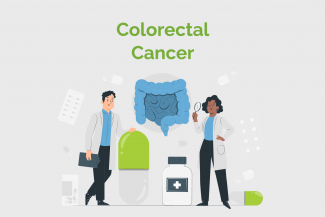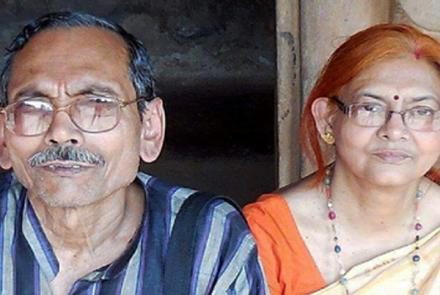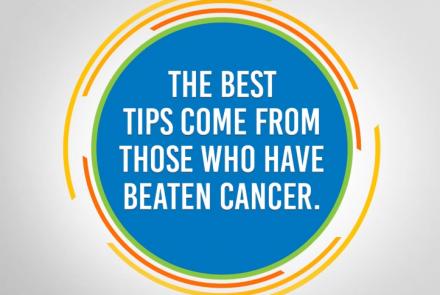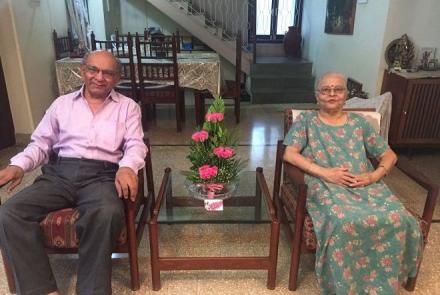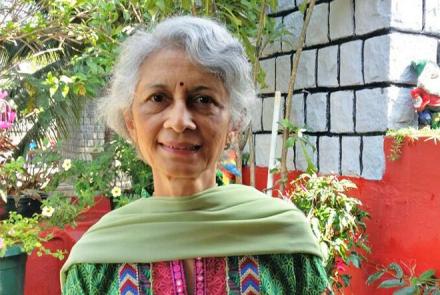
There are several options to consider. These can be used alone or in combination. Treatments for colorectal cancer include:
- Surgery
- Chemotherapy
- Radiation therapy
- Targeted therapy
Surgery
This is the most common treatment to remove cancer from the colon or rectum or from distant organs.
Types of surgery: This depends on the type, size, location and extent of the spread of cancer. Options include:
Polypectomy: Small growths on the inner lining of the colon, called polyps, are removed by colonoscopy.
Local excision: This is used to remove cancer in the rectum. Small or localised cancer will be removed from the colon lining. A small border of healthy tissue is also removed to make sure that no cancer cells are left behind.
Laparoscopic colectomy: An instrument called a laparoscope is used to remove part of the colon and nearby lymph nodes. This procedure can be used in early stage cancer. The incisions are smaller than open colectomy and recovery is fast.
Resection of the colon: Called colectomy, the part of the colon containing the tumour and nearby lymph nodes are removed in this procedure. The doctor can choose the type of colectomy depending on the location, size and stage of cancer. For instance:
Partial colectomy: Part of the colon is removed. The remaining parts are joined together through anastamosis. Bowel habits will remain the same as before cancer.
Right colectomy or ileocolectomy: The right side of the colon with the last segment of the small intestine, called ilium, is removed. The remaining part of the small intestine and colon are rejoined through anastamosis. Bowel habits will remain same.
Proctosigmoidectomy: The diseased part of the rectum and sigmoid colon are removed. A small pouch is made by the doubling back of a short segment of colon (J-pouch). This small reservoir of colon functions as a storage space for faecal matter, like the rectum did before surgery. Bowel habits remain same.
Abdominoperinal resection: In this procedure, the anus, rectum and the sigmoid colon are removed. A permanent colostomy (an opening of the colon onto the skin for waste to pass out of the body) is required.
Total abdominal colectomy: In this operation, the entire colon is removed. The doctor will rejoin the ilium and rectum by anastamosis. Bowel habits remain same.
In some cases, the doctor may decide to have a temporary colostomy (opening in the skin for waste to pass out of the body), while the bowel heals. Once it has healed, the doctor can close the opening.
Cryosurgery: Extreme cold produced by liquid nitrogen or argon gas is used to kill abnormal tissue. In colorectal cancer, cryosurgery is reserved for unresectable liver metastases.
Chemotherapy
In chemotherapy, drugs are administered to kill cancer cells. In colorectal cancer, chemotherapy can be given before surgery in order to shrink the tumour, after surgery to eliminate all cancer cells or in advanced cancer, where surgery is not possible (due to metastasis). Chemotherapy can be combined with radiation therapy. Chemotherapy has side effects, like nausea, vomiting, loss of appetite, hair loss, mouth sores, anaemia and diarrhoea.
Radiation therapy
In radiation therapy, cancer cells are killed using high-energy rays. Radiation therapy can be combined with surgery and chemotherapy. Short-term side effects of radiation include skin rashes, rectal irritation, bowel irritation (stool leakage), bladder irritation (feeling like you need to pass urine more frequently, pain while urination), swelling and fatigue, sexual problems (impotence in men and vaginal irritation in women).
Targeted therapy
In targeted therapy, specific drugs are used to target cancer-specific genes, proteins or tissues that help cancer growth. It is often used with chemotherapy and other cancer treatments.

